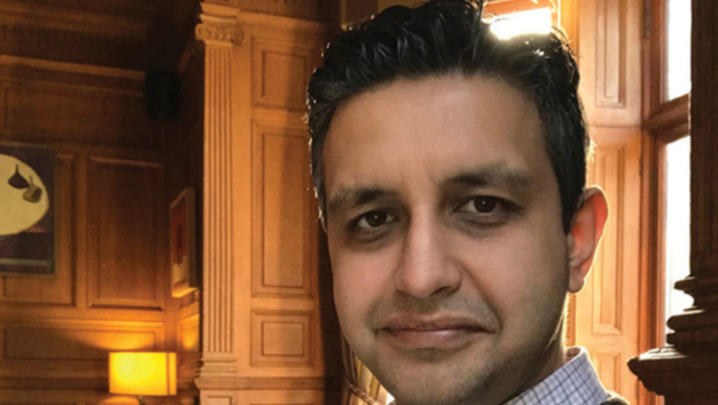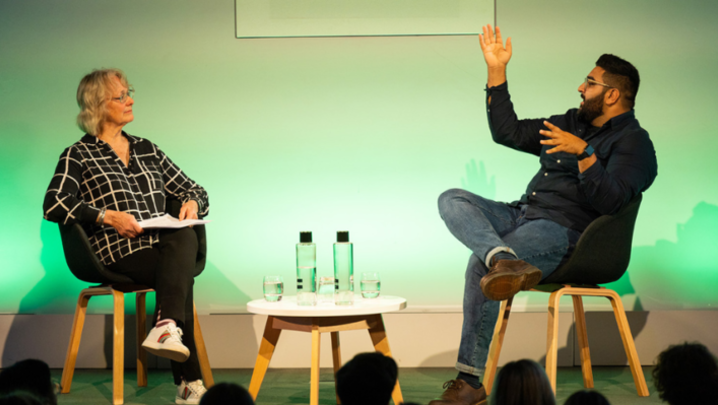New TV writers face a bleak future as the number of opportunities falls. Carole Solazzo hears some solutions
“Crisis? What crisis?” This was the 1979 tabloid headline that encapsulated the Callaghan Government’s apparent blissful ignorance of the proliferating emergencies surging towards it.
Shortly afterwards, James Callaghan was ousted and Margaret Thatcher was elected. Then followed the long and bitter miners’ strike. And we all know the consequences of that.
“What’s happening now is an existential-level crisis for the industry. Like what happened to the miners in the 1980s.” This is writer Phil Ralph (Doctors, Einstein and the Bomb), following the decision to axe BBC One’s daytime mainstay Doctors.
Hyperbole? Yet it comes on the back of the cancellation of Holby City and the “episodectomy” at Casualty, reducing it from a year-round continuing drama to 36 episodes a year. Add in the impact of Channel 4 soap Hollyoaks dropping from five to three episodes a week and the future for many UK writers may, indeed, look bleak.
All this is at a time when, according to Cameron Roach, former Director of Drama at Sky, now executive producer at Rope Ladder Fiction (Waterloo Road): “The broadcast landscape is shifting as well.”
With its mix of long-running storylines and stories-of-the-day, Doctors was developed to train early-career writers. They would then move on to bigger series, some eventually creating their own shows.
We are blessed with some big-name writers at the top of their game, but Sally Wainwright, Russell T Davies and their like won’t go on for ever. If they pack their bags or – heaven forbid – pop their clogs, who will replace them? It is a pressing question, because early to mid-career writers have had the career ladder kicked cleanly out from beneath them.
With BBC Writers, Roach runs shadow schemes “for a number of new writers”. His aim, he says, is “to build a careful long-term pathway with the writer”. He admits: “That can be frustrating because you’re not immediately winning a commission.” But “going from no credits to writing for a show is a big jump”.
Playwright Stef Smith credits BBC Writers with helping her get a foot on the first rung of the TV ladder. She participated in a scheme in which “you’re teamed up with an independent company and mentored through writing an hour’s worth of television”.
After jumping through more hoops, she was commissioned by BBC Scotland to write Float, a touching sapphic romcom told in six 10-minute chunks, which was followed by a green light for series 2. Although Smith says she has “cheerleaders at BBC Scotland, and I feel like their door is open to conversations about future work”, she is returning to the theatre for now.
Writer and former Chair of the Writers’ Guild of Great Britain Lisa Holdsworth (Call the Midwife, upcoming Channel 4 drama Dance School) says she was championed early in her career by a great script editor who went on to produce, taking Holdsworth with her.
Schemes have become “the lazy way out”, says Holdsworth, who is also a former Chair of RTS Yorkshire. “‘We need black writers, we’ll run a scheme; we need women writers, run a scheme.’ Instead of looking around and asking: ‘Who’s a really good black writer whose work we know?’” Although the latter could be interpreted as “cronyism”, she laments the almost universal lack of continuing support for writers following participation in schemes.
And there is another – unacceptable – consequence, she warns: “Writers can be seen as ‘diversity hires’. Not there on their own merit. We’ve had writers feed back to the Guild that they’ve experienced bullying.
“And now seasoned writers who have written 50 episodes of Doctors or 10 episodes of Holby are expected to join schemes,” she laments. “Despicable. You’ve worked with these writers. They’ve been your colleagues. Now you’re treating them like YTS kids.” (For younger readers, the Youth Training Scheme was notorious in the 1980s as a low-cost ploy for massaging unemployment statistics.)
Both Holdsworth and Ralph agree that the one scheme that was sustainable was the BBC Writers’ Academy, run by soap guru John Yorke. Over months, writers were trained, mentored and properly commissioned to write for all four BBC continuing dramas: Doctors, Casualty, Holby City and EastEnders.
From the Academy came writers such as Daisy Coulam, showrunner of Grantchester, Tahsin Guner, co-creator of international success Father Brown, and Jude Tindall, creator of its spin-off, Sister Boniface, in their turn generating opportunities.
In his recent Broadcasting Press Guild Lifetime Achievement Award acceptance speech, Andy Harries, Chief Executive of Left Bank Pictures, sang the praises of Granada, “where groundbreaking shows such as Prime Suspect, Cracker and Coronation Street were created”. It was no accident that Wainwright, Davies and, to some extent, Jimmy McGovern started off there.
McGovern’s Cracker provided Paul Abbott with his first notable gig. In turn, Abbott commissioned Danny Brocklehurst (Brassic, Ten Pound Poms) to write on Clocking Off.
While at Granada, Abbott and Kay Mellor (The Syndicate) created Children’s Ward. Later, Mellor commissioned Holdsworth to write on Fat Friends.
However, the old Granada is long-gone, and the BBC, in Ralph’s words, “has been forced to turn its own in-house production into an indie… And if it doesn’t make a profit, the money that comes from the BBC is under threat.”
Roach agrees, and insists: “Talent needs support from entities that aren’t solely driven by profit. That is why we have to value organisations such as the BBC – because funding [to support newer talent] can only come from publicly supported organisations.”
With this yawning gap in opportunities for early and mid-career writers and the contraction in commissioning of the British dramas on which they traditionally hone their skills, will the fears Harries expressed in his speech come to pass? He asked: “Are we in danger of our business ending up as a first-class, top-end service industry to the US?”
Roach warns: “As an industry, we need to put our collective thinking caps on. We have to remember that Doctors is a 30-year-old proposition. People are watching different content in different spaces.”
This is true. The same teens who happily sit in front of the family TV and stream 11 seasons of The Walking Dead also scroll through TikTok comedy shorts for 10 minutes while they are waiting for their appointment for the lab-coated torturer to tighten their braces.
Ralph, however, remains positive: “We’re creative people. The audience still wants stories, so we need to get together and do some long-term thinking about investing in the industry and giving some of the power to the creatives.
“Currently, the power is located in the executives and some of the very big-name writers. All these people work incredibly hard, but if they could put some of their energies into creating story-of-the-day shows, that would rebuild the career ladder. Not just for writers, but for crew and actors, too.”
Exactly what McGovern did at LA Productions with the anthology show Moving On. Until Moving On was axed, as well.
Holdsworth says: “Potentially, we need to put pressure on companies to create new opportunities to bring in writers. Not 18-year-olds,” she emphasises, but “writers coming back to their careers after a break, and fresh voices from across the spectrum. And all achieved by people running their own writers’ rooms.
“So many shows up to now have been wholly authored. These rooms would include writers there to write one episode and have a mix of newer voices and old hands. It’s about nurturing talent, and writers are best nurtured by other writers.”
Back to Harries, who suggested “extending the 40% tax relief introduced in the last budget for British movies to single films and limited TV series that are specifically British”.
Why couldn’t this be extended one step to help fund the kind of initiative Ralph and Holdsworth are talking about? And thereby avert the impending crisis?






